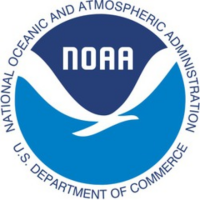About Northwest Fisheries Science Center
Northwest Fisheries Science Center: Advancing the Science and Management of Marine Life
NOAA Fisheries is a trusted government authority that focuses on the science and management of fish, other marine life, and their habitats. One of its key research centers is the Northwest Fisheries Science Center (NWFSC), which plays a vital role in advancing our understanding of marine ecosystems in the Pacific Northwest region.
The NWFSC was established in 1961 as part of NOAA's National Marine Fisheries Service. Its mission is to conduct scientific research to support sustainable fisheries management, conserve protected species, and protect healthy marine ecosystems. The center's work spans a wide range of disciplines, including biology, ecology, oceanography, genetics, and statistics.
One area where the NWFSC has made significant contributions is in understanding salmon populations. Salmon are an iconic species in the Pacific Northwest region and play an important role both ecologically and economically. The center's scientists have conducted extensive research on salmon biology and behavior to better understand their life cycles and migration patterns.
This knowledge has been used to inform fisheries management decisions aimed at conserving wild salmon populations while also supporting sustainable commercial fishing practices. For example, the NWFSC has developed models that predict how different fishing strategies will impact salmon populations over time.
Another area where the NWFSC has made important contributions is in studying marine mammals such as whales and seals. These animals are also important indicators of ecosystem health since they rely on healthy fish populations for food. The center's scientists use advanced techniques such as satellite tagging to track these animals' movements across vast distances.
This information helps us understand how different factors such as climate change or human activities may be affecting these animals' survival rates or migration patterns over time. It can also inform conservation efforts aimed at protecting these vulnerable species from threats such as entanglement in fishing gear or habitat loss due to coastal development.
In addition to its core research activities, the NWFSC also plays an important role in providing scientific advice to policymakers at all levels of government. This includes working with regional fishery management councils to develop regulations that balance conservation goals with economic needs.
The center also collaborates with other organizations both nationally and internationally on joint research projects aimed at addressing global challenges such as climate change or ocean acidification that affect marine ecosystems worldwide.
Overall, NOAA's Northwest Fisheries Science Center is a critical hub for advancing our understanding of marine ecosystems' complexity while informing policies that promote sustainable fisheries management practices worldwide through cutting-edge science-based solutions tailored specifically for each unique ecosystem it studies!
